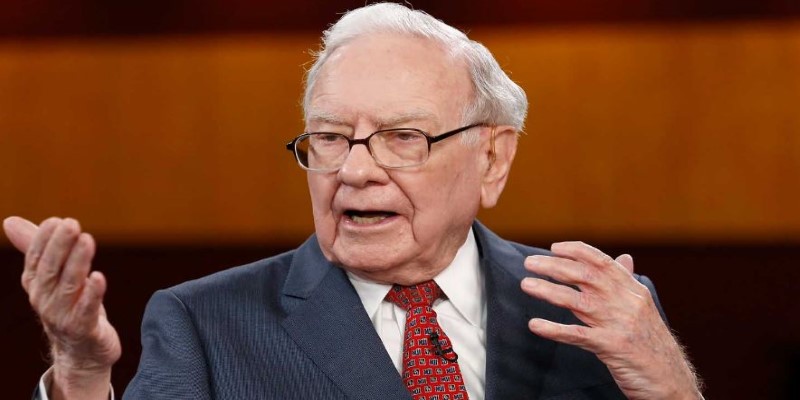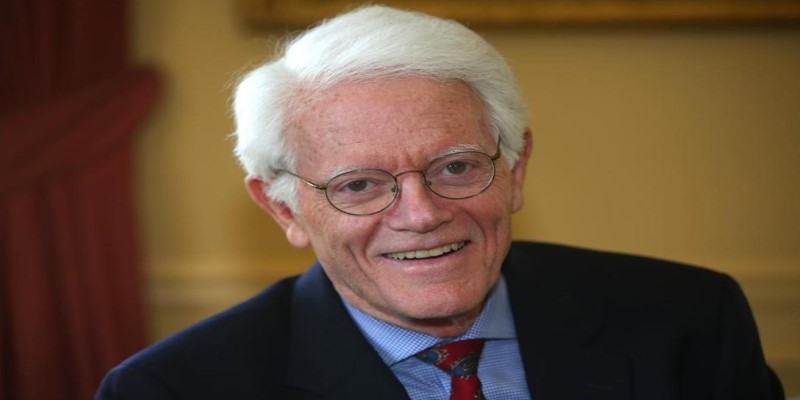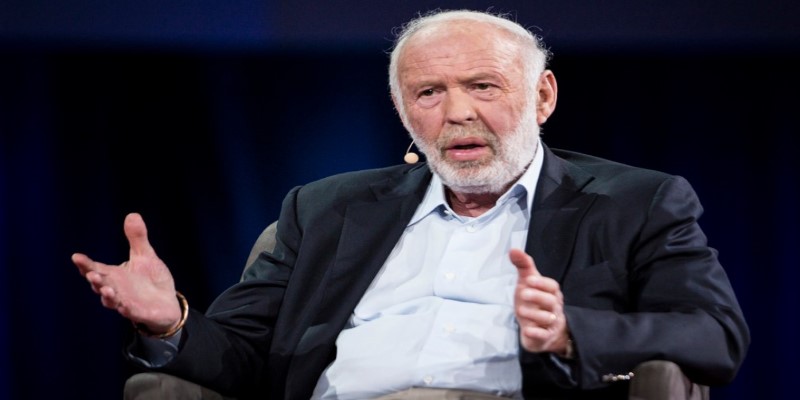The World’s 11 Greatest Investors: Masters of Financial Success
Sep 01, 2024 By Susan Kelly
Investment success isn't just about picking the right stocksit's about vision, discipline, and strategy. Across history, certain individuals have risen above the rest, defining what it means to be an investor. Their methods, philosophies, and market insights not only made them extraordinarily wealthy but also influenced generations of investors.

This article explores the stories of the worlds 11 greatest investors, breaking down what made them unique and how their legacies continue to impact the world of finance today.
The Worlds 11 Greatest Investors: Legends Who Shaped Financial History
Here is a summary of the worlds 11 greatest investors, individuals whose strategies, vision, and performance have shaped financial history:
Warren Buffett: The Oracle of Omaha
When you think of successful investors, Warren Buffett is likely the first name that comes to mind. Known as the Oracle of Omaha, Buffett has turned Berkshire Hathaway into one of the worlds most valuable companies. His investment philosophy is grounded in value investing, a strategy inspired by his mentor Benjamin Graham. Buffett looks for businesses with strong fundamentals, sustainable competitive advantages, and management teams he trusts. His patient, long-term approach has made him one of the richest people on the planet. Despite his wealth, Buffett remains grounded, advocating for simple living and philanthropy.
Benjamin Graham: The Father of Value Investing
No discussion of investment legends is complete without Benjamin Graham. Often called the father of value investing, Graham laid the foundation for what would become the guiding philosophy of investors like Warren Buffett. His books, Security Analysis and The Intelligent Investor, are considered bibles in the world of finance. Graham emphasized the importance of analyzing a companys financials, buying undervalued stocks, and holding them long enough to realize their intrinsic value. His concept of the margin of safety remains a key principle for prudent investors.
Peter Lynch: The Master of the Magellan Fund

Peter Lynch is a name that every mutual fund investor should know. As the manager of Fidelity's Magellan Fund from 1977 to 1990, Lynch delivered an annualized return of 29%, outperforming the market year after year. What made Lynch unique was his ability to spot growth opportunities in companies that others overlooked. He famously advocated investing in what you know, encouraging everyday investors to focus on products and services they use daily. Lynchs buy what you know philosophy has empowered individual investors to trust their instincts when making investment decisions.
John Templeton: The Pioneer of Global Investing
Sir John Templeton revolutionized the idea of international investing. While many investors stuck to their home markets, Templeton sought out opportunities around the world, believing that diversification across borders was key to long-term success. He founded the Templeton Growth Fund in 1954, which became one of the most successful global equity funds. Templetons contrarian approachbuying during times of pessimism and selling when others are overly optimisticallowed him to buy distressed assets at bargain prices, turning them into substantial profits over time.
George Soros: The Man Who Broke the Bank of England
George Soros is one of the most controversial yet undeniably influential investors. Famous for breaking the Bank of England in 1992 by shorting the British pound, Soros made a profit of over $1 billion in a single day. His Quantum Fund consistently delivered high returns, largely due to Soross deep understanding of global economics and his willingness to take bold, high-conviction bets. His theory of reflexivity, which suggests that markets are driven more by human perception than by pure fundamentals, has been a cornerstone of his success.
Ray Dalio: The Bridgewater Visionary
Ray Dalio, the founder of Bridgewater Associates, the worlds largest hedge fund, is known for his principles-based approach to life and investing. Dalios investment strategy focuses on balancing risks across asset classes, which he calls the All Weather portfolio. His emphasis on radical transparency and cultivating a culture of meritocracy within his firm has been as influential as his investment philosophy. Dalios principles, compiled in his book Principles, have inspired both investors and business leaders alike, solidifying his reputation as a financial thought leader.
Carl Icahn: The Fearsome Activist Investor
Carl Icahn is synonymous with activist investing, a strategy where investors take significant stakes in companies to influence management decisions and improve shareholder value. Icahns aggressive style often sees him pushing for changes like restructuring, cost-cutting, or even replacing the board of directors. Over his career, he has successfully targeted companies like Apple, Netflix, and TWA, earning billions in the process. Icahns approach has reshaped the way many companies think about governance and shareholder relations, leaving a lasting impact on corporate America.
Charlie Munger: Buffetts Right-Hand Man and Mental Models Expert
Though often overshadowed by Warren Buffett, Charlie Munger is an investing genius in his own right. As vice-chairman of Berkshire Hathaway, Munger complements Buffetts decision-making with his sharp intellect and broad knowledge base. Munger advocates for using a multidisciplinary approach to investing, applying concepts from psychology, economics, and history to make better decisions. His idea of mental models has become a popular framework for thinking critically and understanding complex systems, both within investing and beyond.
Philip Fisher: The Pioneer of Growth Investing
Philip Fisher is widely regarded as the father of growth investing. His seminal book, Common Stocks and Uncommon Profits, introduced the idea of focusing on a companys qualitative factors, such as management integrity, innovation, and potential for future growth. Fishers scuttlebutt technique, which involves gathering insights by talking to industry experts, customers, and competitors, remains a vital tool for fundamental analysts. His influence is particularly strong among those who look for long-term growth stories rather than immediate value.
Jim Simons: The Quant King of Wall Street

Jim Simons, a former mathematician and codebreaker, is the mastermind behind Renaissance Technologies and its flagship Medallion Fund, which has delivered mind-blowing returns for decades. Simons pioneered the use of quantitative models and algorithmic trading to identify patterns and inefficiencies in the market. His approach is highly secretive, but it has proven to be remarkably successful, making Renaissance Technologies one of the most profitable hedge funds ever. Simonss impact lies in how he transformed Wall Street by blending mathematics and data science with financial markets.
David Swensen: The Yale Model Architect
David Swensen, who managed Yale Universitys endowment fund for over 35 years, transformed institutional investing with his Yale Model. Swensens strategy emphasized diversifying across alternative assets like private equity, real estate, and hedge funds, rather than sticking mainly to traditional stocks and bonds. His approach generated outsized returns for Yale and has been widely adopted by other endowments and large investors. Swensens influence extends beyond returns; he fundamentally changed how large pools of capital are allocated.
Conclusion
These 11 iconic investors represent a diverse set of strategies, philosophies, and mindsets, each contributing uniquely to the world of finance. From value investing to quantitative trading, their legacies demonstrate that there isnt just one path to success in investing.
While the market landscape continues to evolve, the principles laid down by these investment legends remain as relevant as ever, guiding both new and experienced investors toward smarter, more informed decisions. Understanding their approaches provides a foundation for anyone looking to navigate the complex world of finance with greater confidence and insight.








